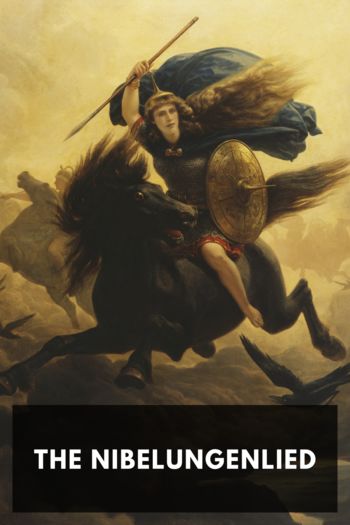The Trials of Radclyffe Hall, Diana Souhami [best sales books of all time .TXT] 📗

- Author: Diana Souhami
Book online «The Trials of Radclyffe Hall, Diana Souhami [best sales books of all time .TXT] 📗». Author Diana Souhami
Una noted in her diary the ever-spiralling sales – 72,000, 83,000, 100,000. Radclyffe Hall received a royalty cheque of $64,000 and an avalanche of letters. Morris Ernst winged in a bill to Pascal Covici. ‘Long bitter experience has taught me that the time to send in bills is when clients are happiest’, he wrote. He wanted to meet him to determine the final fee. ‘As you will recall, I stated to you that our charges would take into consideration as an important factor, the result obtained.’
Radclyffe Hall had fame but not of the sort she wanted. It was tinged with notoriety and had a disreputable edge. She was disenfranchised, her country had branded her, she did not now know where to make her home. She was flattered to receive, in Paris on 9 April 1929, a letter from an American actress who thought The Well of Loneliness a ‘great tragic story that would make a wonderful play’. Wilette Kershaw told Radclyffe Hall that she ‘knew her’ through her books and considered this a privilege. She would like to talk about a dramatization. ‘I feel Steven strikes a big tragic note and think I could reach it.’
John and Una met her on 17 April. The meeting fitted in with worries over the content of the preface for Covici-Friede, tea with Dolly Wilde and Ezra Pound, Una having a permanent wave and the choosing of an ‘unpardonably inbred’ griffon called Tulip, which had six toes on each paw.
John told Wilette Kershaw she would not do the dramatization herself, nor could she suggest anyone. Four days later Una wrote in her secretarial capacity: Miss Hall was far too busy to meet again, she was preparing material for a special edition of The Well of Loneliness and working on a new book. Miss Kershaw should let Miss Hall know as soon as possible her ‘definite plans anent dramatisation, theatre & financial basis, when, subject to the dramatic rights being still available she and her agent will gladly consider them’. Audrey Heath recommended Dorothea Fassett of the London Play Company in Piccadilly to act for Radclyffe Hall.
Wilette Kershaw drew up an agreement which licensed her to produce the play against an advance of £100. She would stage it in New York or Paris within eighteen months, show Radclyffe Hall the script and pay agreed royalties. On 7 May Radclyffe Hall signed this contract, though a page of it was missing. ‘All my papers were mislaid and in disorder’, Kershaw later said. The advance was paid to the London Play Company.
All seemed well. John welcomed all efforts to breathe life and good fortune into her book. She and Una shopped for their holiday. Una hired a car and a driver called Pierre from the Transports Automobiles. They left for the Riviera on Friday 17 May after an early breakfast at the Hotel Osborne. They travelled with ‘much luggage and impedimenta’, Barber the maid and Tulip the six-toed dog.
THE MASTER OF THE HOUSE
26
An awful shock
John and Una went south via Sens and Mâcon, Lyon, Orange, Avignon. They stopped when they felt like it, shopped for antiques in the markets, stayed in the best hotels and ate in the best restaurants. Pierre was told to drive at a snail’s pace. Barber was given ‘grave warnings’ for fortifying herself with alcohol. When she put a left shoe tree in one of John’s right shoes, Una threatened to pack her off back to England.
Colette had recommended Seaward Lodge, an English pension near St Tropez. John thought the rooms dark, the lunch poor and deplored the walk to the sea. By evening they were at the Golf Hotel, Beauvallon. ‘Divine’, Una said of their spacious rooms, the balconies that looked out over the private beach.
It was a perfect summer: clear sky, the blue Mediterranean, warm air from the wide open windows. John, Una said,
grew as brown as a berry and her hair got bleached and her eyes were clear and very blue and her teeth very white in her tanned face … All the lines of strain and anxiety seemed to disappear and her smile grew rakish and carefree again and I think I never knew her to be so well. I myself had grown positively stout: I turned the scales at nearly eight stone and was mahogany coloured all over … Oh yes, it was indeed a holiday of holidays.
They swam naked, lunched on lobsters, drove to Colette’s villa. The effort of a day was to buy a pair of sandals, go to the chemist, walk with Tulip on the golf course, or lie on their beds. ‘All afternoon we rested by open windows and read All Quiet on the Western Front’, Una wrote. Friends rented villas nearby – John and Jehanne Holroyd-Reece, Romaine and Natalie. John worked on her trolley book, The World, and made notes for her next novel, The Carpenter’s Son. It was to be about the martyrdom of Christ, written, Una said, ‘as an amends for that insult to her Lord and to her faith’ made in Egan’s caricature of her in The Sink of Solitude.
After two months, at the end of July 1929, they decided to go back to Paris then on to Bagnoles in Normandy for thermal baths and the attention of doctors. Barber was sacked for drinking and inefficiency and sent to England by train. And Pierre the chauffeur went the way of all servants. In Paris Una called at the Transport Automobiles,





Comments (0)